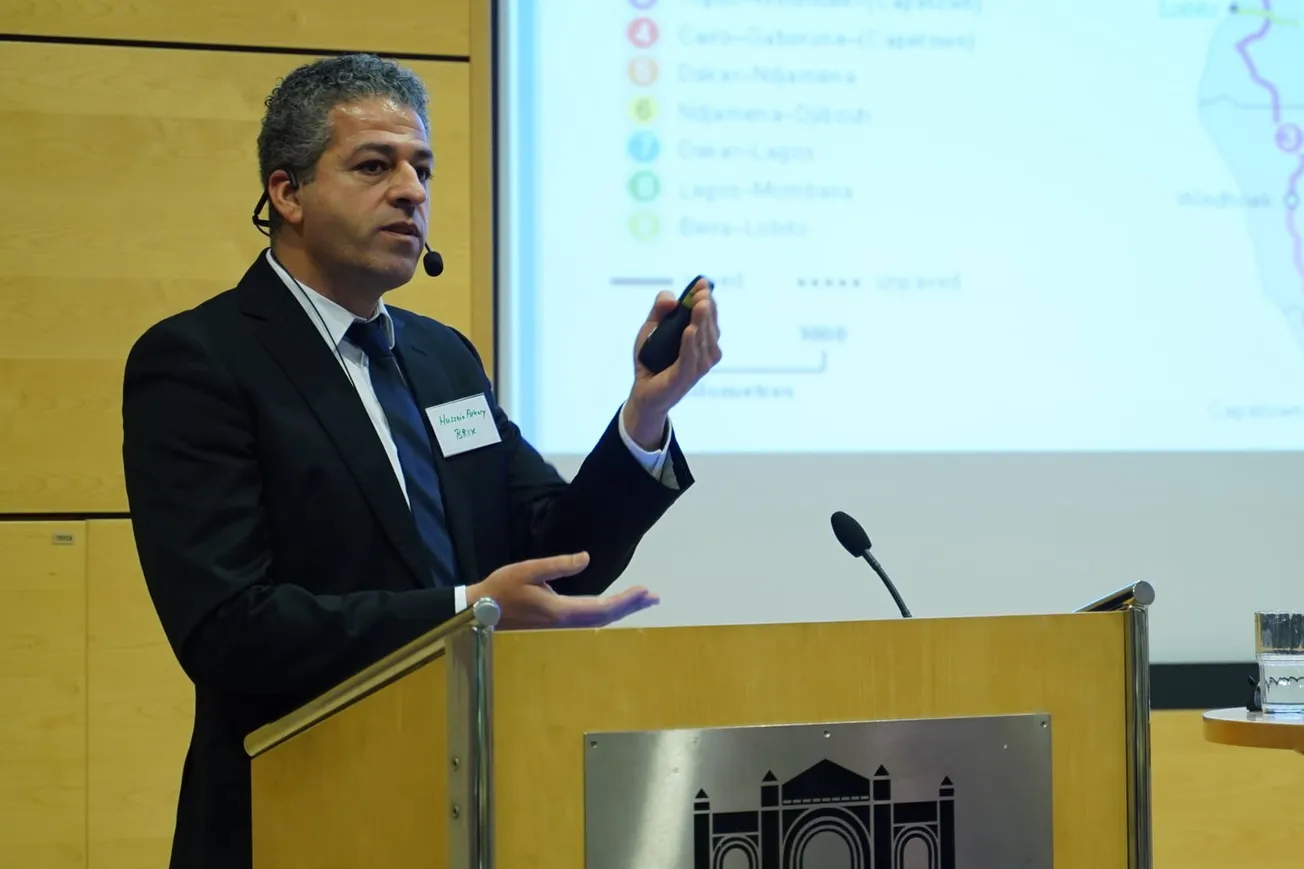The Egyptian daily Al-Masry Al-Youm, the largest independent (not state-owned) daily in the country, published a full-page interview today with Hussein Askary, the Schiller Institute’s West Asia Coordinator. The interview, conducted by the daily’s economic editor Misbah Qutb, covers a lot of ground, starting from the key question of who was Lyndon LaRouche, and what are the goals of his movement and the Schiller Institute; to a detailed discussion of the Oasis Plan; Britain’s role in the world; financial speculation vs. physical economy, and a flurry of other strategic questions. In Arabic, all under the headline, “Egypt’s Plan Is the Cornerstone for Rebuilding Gaza and Preventing Deportation,” and its kicker: “Peace in the region is still possible, but establishing a Palestinian State is imperative on its stolen territories.” (Quotes cited are from machine translation.)
Askary explains from the outset that American economist and political thinker Lyndon LaRouche and his movement have “focused on building a new, just global economic order” for decades, using the method of physical economics developed by LaRouche, while the Schiller Institute, founded by LaRouche’s wife Helga Zepp-LaRouche, “aims to disseminate classical culture and intercultural dialogue as integral parts of human development and the establishment of a humane global order,”
The interview quickly turned to the Oasis Plan, “proposed by LaRouche in 1975, [which] aims to achieve peace through development between Arab countries and Israel,” and end the attempts “to keep the region forever embroiled in conflicts orchestrated by the United States and Britain.” Water and food security must be secured through seawater desalination and new agricultural technologies. Transportation infrastructure (rail and road) and energy production are to be built, “particularly nuclear energy, and exploiting the region’s natural resources, such as oil and gas, to produce industrial materials, rather than simply export crude oil.”




